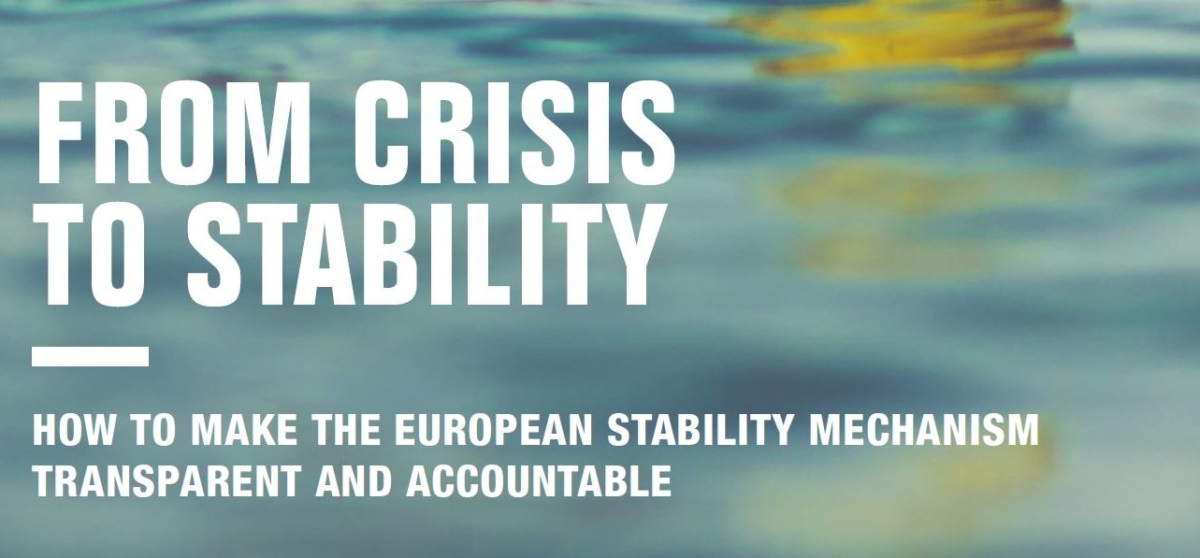The European Stability Mechanism (ESM) must be brought into the EU treaties to increase its accountability, according to a first of its kind study, published today by Transparency International EU. The ESM, created during the Eurozone crisis to support countries in financial difficulties such as Greece, performs well on financial auditing and integrity, but falls short on accountability, according to the report. However, it must be integrated into existing EU structures before developing it into a “European Monetary Fund”, as proposed by Commission President Juncker in the “Future of Europe” White Paper released last week.
“The ESM has solid financial controls, but democratic control is patchy,” said Leo Hoffmann-Axthelm, Research & Advocacy Coordinator at Transparency International EU. “The ESM often gets blamed for austerity policies, but it’s just a pot of money and how it’s used is a political choice made by Eurozone finance ministers. If we are to move from crisis to stability then the ESM needs to come under the EU treaties so that the normal standards of accountability and democratic control finally apply”, said Hoffmann-Axthelm.
The in-depth research finds that the ESM is directly controlled by Member States, but delegates design and surveillance of its reform conditionality to the European Commission and the European Central Bank. The ESM’s governing bodies do not release meeting minutes, making it difficult for citizens and parliaments to understand who is in charge of the reforms imposed with the bailouts. Furthermore, due to the ESM’s voting structure control rests with large countries, such as Germany and France.
The ESM shows willingness to embrace transparency, notably with the 2016 Transparency Initiative, but there is little more that can be achieved under existing institutional arrangements. Bringing the ESM into the EU treaties will enable the institution to fully take part in the European ‘transparency and integrity acquis’, such as the right to access to documents, according to Transparency International EU.
The report also finds that international best practices have not always been honoured at the ESM. There is no independent, internal evaluation office, and no social impact assessments for bailout programmes in Greece were carried out until 2015, which may have contributed to the social problems connected with the reform agenda.
Transparency International EU recommends that:
- The ESM needs to be included in the EU treaties as a matter of priority.
- ESM decisions should be taken in ESM governing bodies, not the Eurogroup. The publication of meeting minutes or a similarly detailed accountability mechanism should be introduced.
- Economic models and underlying assumptions should be made public to allow an informed debate.



